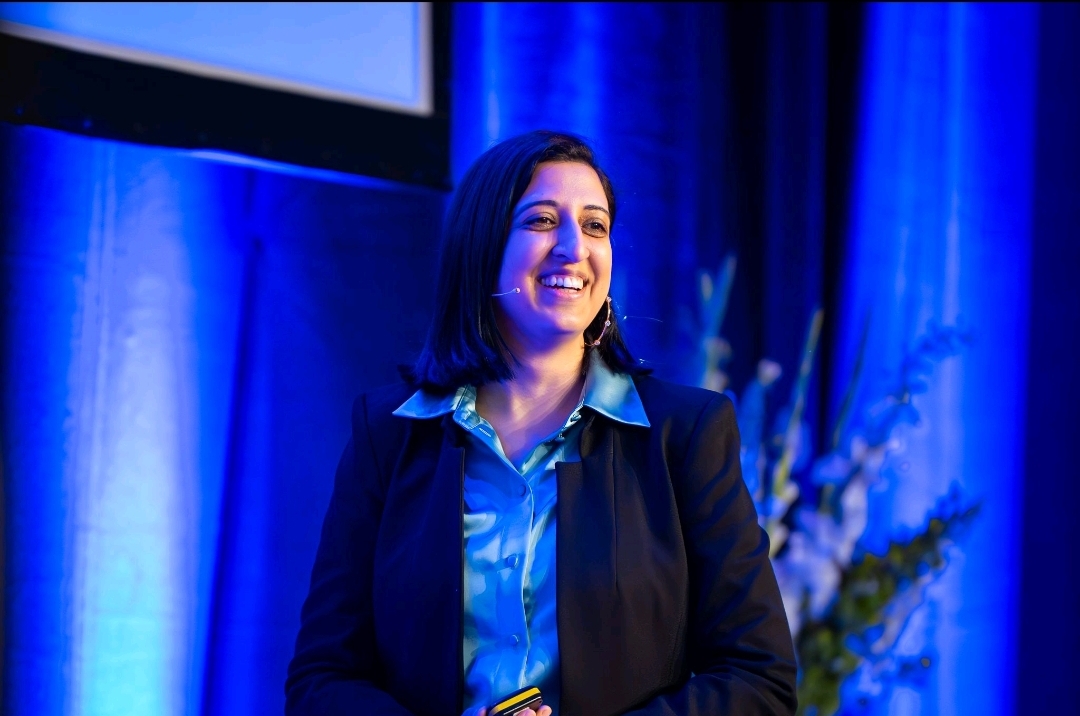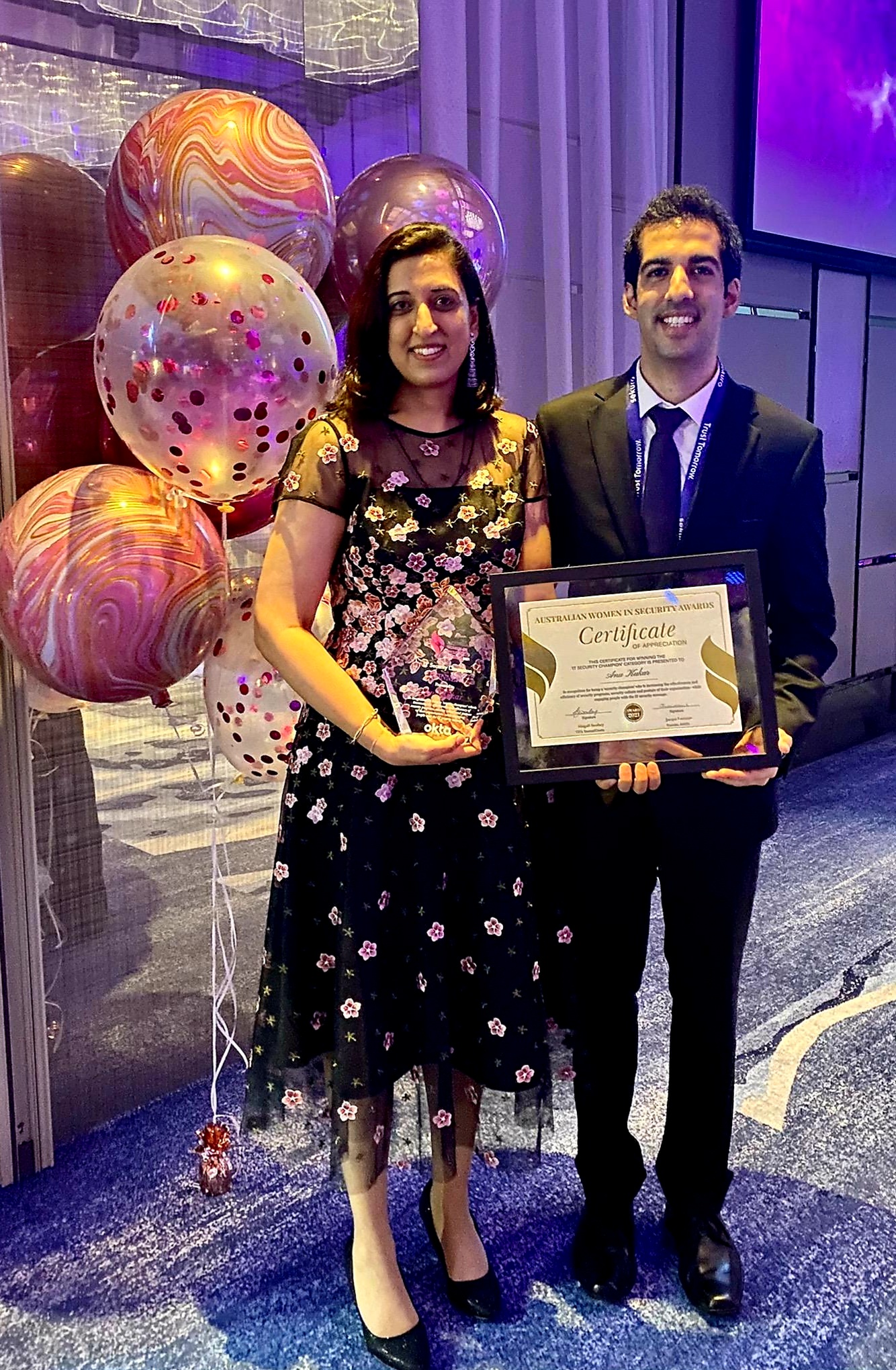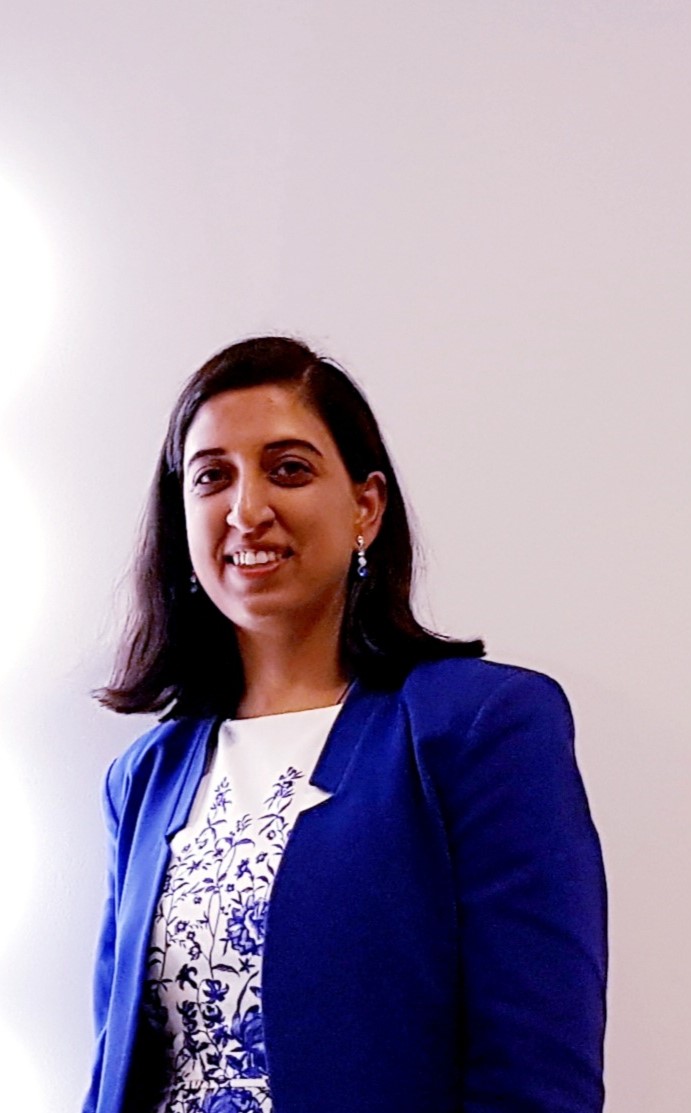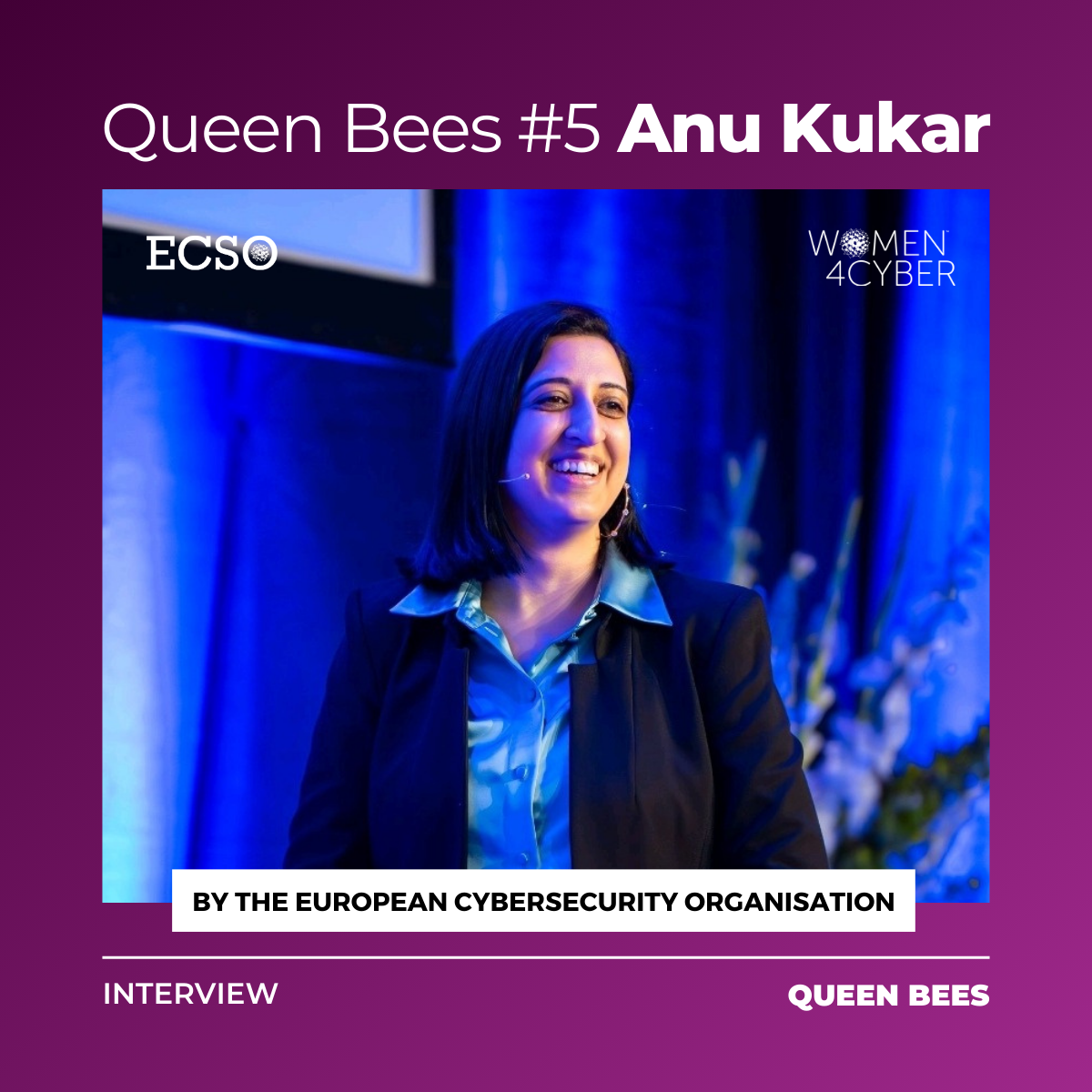Over the past year, Queen Bees has regularly shared inspiring career insights from women leading in the cybersecurity hive. We've had the privilege of interviewing these incredible professionals and hope to inspire others to pursue careers in cybersecurity! Do you know an inspiring female leader with a story to share? Contact us!
For this special edition, we feature Anu Kukar, a cybersecurity leader whose career began in tax accounting before evolving through multiple industries into technology, data, and cyber. Her journey proves that diverse skills and adaptability can lead to success in cyber. Get inspired by her story!
Could you briefly describe your career path and current position?
My career journey into cyber is based on a strong and diverse background. I started as a tax accountant and moved through three to four different career fields, harnessing unique skillsets, before moving into technology, data and cyber. These skills, when brought together, provided the right base for me as a cyber leader, which I now apply in my current role.
My 20+ years of experience has involved working in Tier 1 banks and technology companies as well as the Big 4 consulting firms covering the EMEA, UK, APAC and ANZ markets. I am currently a Partner in Cyber at Deloitte Nordics with a focus on financial services.

When and why did you decide to work in cybersecurity? Was there anything or anyone sparking your interest in cybersecurity? Were you already interested in IT security when you were young?
As a kid, I grew up with and used to play a lot with LEGO. It was fun to build what the box showed. But what was more fascinating was using the same blocks to build something of your own imagination. This is what ignited creativity and curiosity. Somewhere that fascination carried across to my career whereby rather than just having several hobbies, having several careers has brought a blend of different skills and perspectives, which became of high importance in the field of cyber. Cybersecurity has long been an area I wanted to get into, due to the purpose and relevance safeguarding the livelihoods of people.
Were there any unique challenges to overcome to get to the position where you are now? Did you ever encounter any gender-related stereotyping? Feel free to mention examples.
The global cyber skills shortage is front and center for all organizations. Cyber is not an IT problem but a business-wide problem. The multi-disciplinary nature of the cybersecurity field, means that areas outside of technology, such as psychology, finance, risk, legal and compliance, help introduce diverse skills and backgrounds to the cyber field.
In moving into cyber, I faced two challenges:
1. Breaking the barrier of perception that cyber is just for coders; and
2. Trying to understand how I could contribute to cyber with such diverse and unique experiences.
When I reflect back on my career, the mindset of lifelong learning has been so critical as it expanded my experience and was fundamental to creating new opportunities, which in turn became a way to pay it forward to emerging leaders in cyber.
Do you have any role models (in the field or outside)?
Role models come in different ways. For me my biggest role model is in the form of the one that has been the biggest champion supporting my career to date - my brother, Sumeet. As my career champion, he has been somebody by my side helping overcome gender and cultural barriers, being a voice in the market and a constant source of encouragement to me and my peers alike.

What actions do you think should be taken in order to close the gender gap in cybersecurity?
There is a three-fold approach to close the gender gap and bring more people of different nationalities and cultures into cyber:
1. People leaders should be trained in cultural and gender differences to better support and elevate diverse talent from early on in their career;
2. Recruitment could be approached differently, whereby the interaction with talent acknowledges different genders and cultures, which in turn attracts that talent by way of a good place to work; and
3. Enabling champions in the family, at work and outside in our community, whom can provide support, encouragement and remove barriers on a daily basis. Recognition and support are essential elements to closing any workforce gap.

Do you have any suggestions for women to pursue careers in cybersecurity? They can be educational, professional, personal…
Networking. Think of it as making new friends. Reach out to people on social media, at work and attend events in the cyber field.
Asking people for a catch-up or chat to connect with them is a great way to expand your network, while also building your knowledge. In line with closing the gap that we talked about earlier, try and mix it up by meeting leaders of different career and cultural backgrounds. You will be pleasantly surprised with how much there is to learn.
As a closing line, what would be your message for women in cybersecurity?
A career in cybersecurity can be very rewarding. Meet leaders in this space to learn more and if you believe this is something you would like to pursue, then there is nothing that should hinder that.



Comments
Do you want to leave a comment?
Login or register to proceed
Login Register